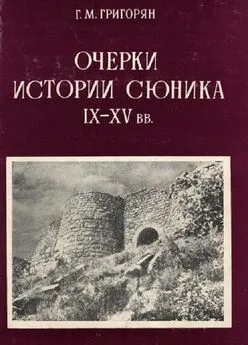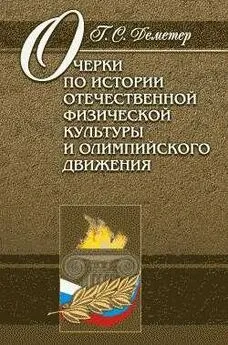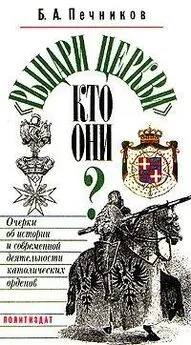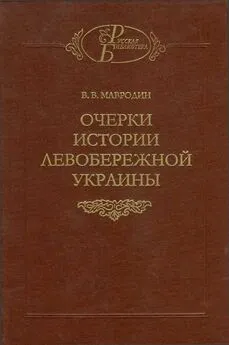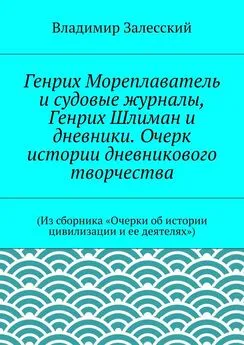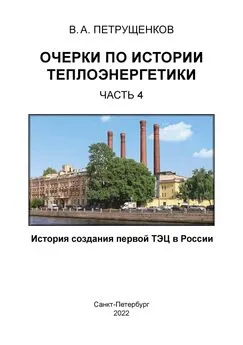Григор Григорян - Очерки истории Сюника. IX–XV вв.
- Название:Очерки истории Сюника. IX–XV вв.
- Автор:
- Жанр:
- Издательство:Издательство АН Армянской ССР
- Год:1990
- Город:Ереван
- ISBN:5-8080-0042-4
- Рейтинг:
- Избранное:Добавить в избранное
-
Отзывы:
-
Ваша оценка:
Григор Григорян - Очерки истории Сюника. IX–XV вв. краткое содержание
Предназначена для историков-медиевистов, а также для широкого круга читателей.
Очерки истории Сюника. IX–XV вв. - читать онлайн бесплатно полную версию (весь текст целиком)
Интервал:
Закладка:
Հարուստ փաստագրական նյութերը հիմք են տալիս եզրակացնելու, որ Սյունյաց թագավորության կործանման, ապա նաև Օրբելյան իշխանապետության վերացման համար հող նախապատրաստեցին հետևյալ պատճառները.
1. Երկրի քաղաքական մասնատվածությունը.
2. Օտար նվաճողների ներխուժումները.
3. Հայաստանի ավատական տների միջև եղած հակամարտությունները և կենտրոնախույս ձգտումները։
Հայաստանը, ընդ որում նաև Սյունյաց նահանգը, աստիճանաբար կորցրեցին արտաքին թշնամուն դիմակայելու ունակությունը և դարձան օտար զավթիչների անընդհատ բախումների ասպարեզ, ծայր առավ զանգվածային արտագաղթը մայր երկրից։ Բնիկ տերերի փոխարեն հրամայող դիրքեր գրավեցին քոչվոր ցեղապետները։ Սակայն երկրի կենսունակ ուժերը՝ ռամիկն ու գյուղացին, երբեք չհեռացան հայրենի լեռներից, ապավինեցին նրանց և վերընձյուղվեցին՝ գալիքի անկոտրում հավատով։ Մնում էր երկու դար, որպեսզի սկսվեր փառահեղ դրվագներով լեցուն մի նոր պատմաշրջան, որի հերոսն էր լինելու թուրք-պարսկական զավթիչների ահ ու սարսափ Մեծն Սյունեցին՝ Դավիթ Բեկը։
Резюме на английском языке
Through the critical analysis of the numerous basic sources and auxiliary material this research represents to the reader the comprehensive history of the Armenian Siunik province social — political relations and cultural life during the period of developed feudalism. The documented historical reality testifies that Siunik was inhabited by the descendants of the Haik — Sisakan kin from the most ancient times, and that following generations have preserved their national appearance and psychological peculiarity up today. This area of the Armenian upland played an important role as one of the cradles of civilization. After the creation of Armenian alphabet, Mesrop Mashtots and Sahak Parthev entrusted the translation of the Bible precisely to the cleric scholars of Siunik (Shaghat). And this work had been performed as a masterpiece, designated as a Queen of translations.
Unsignificant exceptions aside, Siunik had been always existed as a component of a united Armenian state. If secessionist tendencies sometimes appeared, they were conditioned not by the imagined ethnic difference of the land, as it unfoundedly try to interpret several contemporary sorry-historians (Z. Bouniyatov, D. Akhoundov, F. Mamedova, etc.).In reality, these noted tendencies were caused by the land significant military and political might. Being one of the vastterritorial provinces of the Greater Armenia, Siunik had never been in composition of the,Caucasian Albania, and also had never been called,the Albanian outskirts. All such newly-baked theories and light-minded hypotheses are evidently imposed from outside, pursuing an aim to strengthen theoretically contemporary Pan — Turkic political territorial aspirations, and to create consciously a middle in the field of the Caucasian studies. It's an incontestable reality, that for all civilized peoples history of feudalism, the intensification, of contradictions and secessionist tendencies are extremely typical. Just the same tendencies were apparent also in Armenian medieval history. Some representatives of the contemporary Azerbaijanian historiography completely unfoundedly call a galaxy of the prominent Armenian intellectuals, such as Movses Kalankatuatsy, Mkhitar Gosh, Kirakos Gandzaketsy and others were not Armenians, only because all of them were born in Artsakh province. Such biased and fabricated «theories» absolutely deprived of any facts, represent themselves an example of the empty statements. The history of Siunik is constituent part of the Armenian people's history. This truth is testified by the numerous political, economic, legal, cultural primary sources, such as manuscripts, memoranda in the rewritten Bibles, thousands of inscriptions, which give to any civilized people a substantial right of being proud.
It is reprehensible occurence, when some people, whatever intentions they have, wish and attempt to soak up the history of the others, using as a pretext contemporary borderlines of the present day administrative — political maps. The history of Siunik represents one of the brightest pages of the all — Armenian history, and nobody has any right to falsify it's glorious, merited past by the anty-scholar, unfounded,theories.
On the pages of this book we have analyzed historical problems of the feudal houses of Siunik, political events during the period of it's kingdom; mutual struggle of the Armenian and Georgian peoples, and also creation and destruction of the Orbelian principality. The political fall ot Siunik had taken place for the reason of Seljuk Turks', Tatar-Mongols' and Eastern warlike tribes' invasions.
Manuscript sources and particularly lapidary inscriptions testify that in the 12–13-th centuries feudal relations were most developed precisely in Siunik, where due to the political circumstances, under the general leadership of Zakharians, numerous representatives of the old and new noble families of Historical Armenia were centralized. Among them Khaghbakians, Orbelians, Akhthamarians, Mehevanians and others. Created by the competition situation appeared to be useful most of all for the churches. Big donations of land and profitable enterprises were done to the bishopric of Siunik province, to it's churches and monasteries (Tatev, Vahanavank, Noravank, Tsaghats Kar, Tanahat and others). All of them also served as prominent scientific and important scholar centers of the land. Independently from political disunity of Siunik, Armenian church was providing its autocratic power under the rich taxes and exactions, collected from the people. It was tring to attain all three well — known forms of rent.
On the base of the fragmented evidencies of the prime sources it is possible to presume, that the feudal serfdom of peasantry also existed in Siunik, however, it had not got peculiar features, typical for classic countries of feudal enslaving. The main reason was that Siunik was lashing of the stable political basis. In this land free peasant communities predominated. They were giving previously determinated taxes and exactions to civic and cleric lords. Besides, when it was needed, they were also carrying out field work. There were peasant's unrests, directed against the ruling classes in Siunik, on the social ground, which could get the appropriate political direction under the favourable conditions. Blows of such type were the rebellions of peasants from Tsouraberd, Tamlek and other «old lords of native land» from the free peasant communities. As a matter of fact, all this rebellions were an active response on the powerful Tondrakit movement.
Foresightly using the «inju» right, given to Armenians by the Mongol khans, cleric and civic lords of Siunik payed a special attention to the illumination and education tasks. Ciadzor and Tatev Universities, Hermon, Spitakavor Astvatsatsin, Yeghegis and Srkghonk criptorial centers, patronized and assured by Proshians, Orbelians and provincial bishopric, had won the allnational glory. Vigorous grouth of the spiritual and cultural life was greatly conducived, taking into account the circumstances that both political and clerical power in Siunik was centralized in the same hands of the Orbelian noble family.
Prominent and humane Armenian intellectuals of the time (such as Frik, Kirakos Gandzaketsy, Khachatur Kecharetsy, Stephanos Orbelian) being the witness of the wide popular circles' hard conditions, rised their voice of protest against the Mongol governors. In the second half of the 13-th century, when the anty-Mongolian insurrection had blazed up and entire rank of Armenian princes had been taking over the leadership of it, and martyred in the Mongol's clutches for the participation and leadership the struggle. The Mongolian court tryed to oppress subject peoples, continually using «divide et impera» principle. Khans were always active in setting capable of fighting chiefs of the great feudal families against each other.
Rich documents and wide material give us all the grounds for a conclusion, that downfall of the Siunik kingdom, and also extermination of the Orbelian principality and their family had the following reasons:
1. Political disunity of the country.
2. Invasions of the conquerors.
3. Contradictions between Armenian feudal families and secessionist aspirations.
Armenia as a whole, and it's province of Siunik in particular, bit by bit had lost an ability to withstand the outside enemies, and so it had become an area of permanent clashes with foreign conquerors. As a result, an outmigration appeared, and instead of local masters, the dominant position was conquered by chiefs of the nomadic tribes. However, viable forces of the land, it's craftsmen and peasantry, had never abandoned their native mountains. They had taken shelter and put out shoots in them, having an invincible belief into the future. Two centuries had been needed, until began the definitely new and full of glory historical period, which hero was to be a dread and horror for Turkish-Persian invaders, great son of Siunik — Davit-bek.
Приложение [1354]
Избранные лапидарные надписи, грамоты и купчие Сюника, составленные в IX–XV вв.
«Я, владыка Давид, Божьей благодатью епископ Сюника, в 288 году армянского (летосчисления) купил у господина Филиппэ, сына владетеля Сюника Васака, (деревню) Арцив со всеми ее горами и полями, целинными и орошаемыми землями, пастбищами, нивами и лугами в нижеследующих границах (указываются пределы деревни Арцив)…
…Я, господин Филиппэ, получил деньги у епископа Сюника, владыки Давида 10 000 драмов и отдал Святому Кресту деревню Арцив в названных в этом решении границах.
Свидетелями были: господин Атрнерсех — сын владетеля Сюника Васака, Граат — сын господина Саака, господин Атрнерсех — сын господина Вардана, Аршак — сын Ваана, Раббэ — сын Саргиса, священники Саргис, Георг и протоиерей Маркос.
Я, господин Филиппэ, пожаловал и половину Бердканеречи взамен Сарнакара и эту половину также отдал святой церкви. И пусть никто не осмелится отобрать сию (деревню) — ни брат и ни сын мой или кто-либо из моих хостакдаров [1356]. А если кто изменит эти границы, да будет судим Богом и ответит ему за мои грехи, дабы на суде не вышел победителем (упоминаются пределы деревни).
Читать дальшеИнтервал:
Закладка:
